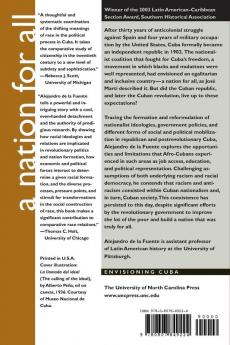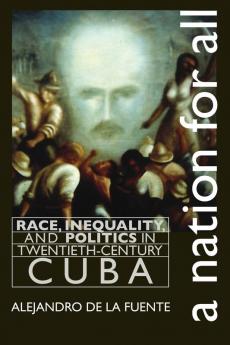English
Paperback
₹4965
₹5826
14.78% OFF
(All inclusive*)
Delivery Options
Please enter pincode to check delivery time.
*COD & Shipping Charges may apply on certain items.
Review final details at checkout.
Looking to place a bulk order? SUBMIT DETAILS
About The Book
Description
Author
After thirty years of anticolonial struggle against Spain and four years of military occupation by the United States Cuba formally became an independent republic in 1902. The nationalist coalition that fought for Cuba&#x2019;s freedom a movement in which blacks and mulattoes were well represented had envisioned an egalitarian and inclusive country &#x2014; a nation for all as Jos<ac>e Mart<ac>i described it. But did the Cuban republic and later the Cuban revolution live up to these expectations?<br/><br/>Tracing the formation and reformulation of nationalist ideologies government policies and different forms of social and political mobilization in republican and postrevolutionary Cuba Alejandro de la Fuente explores the opportunities and limitations that Afro-Cubans experienced in such areas as job access education and political representation. Challenging assumptions of both underlying racism and racial democracy he contends that racism and antiracism coexisted within Cuban nationalism and in turn Cuban society. This coexistence has persisted to this day despite significant efforts by the revolutionary government to improve the lot of the poor and build a nation that was truly for all.
Delivery Options
Please enter pincode to check delivery time.
*COD & Shipping Charges may apply on certain items.
Review final details at checkout.
Details
ISBN 13
9780807849224
Publication Date
-30-04-2001
Pages
-466
Weight
-657 grams
Dimensions
-156x234x26.36 mm











